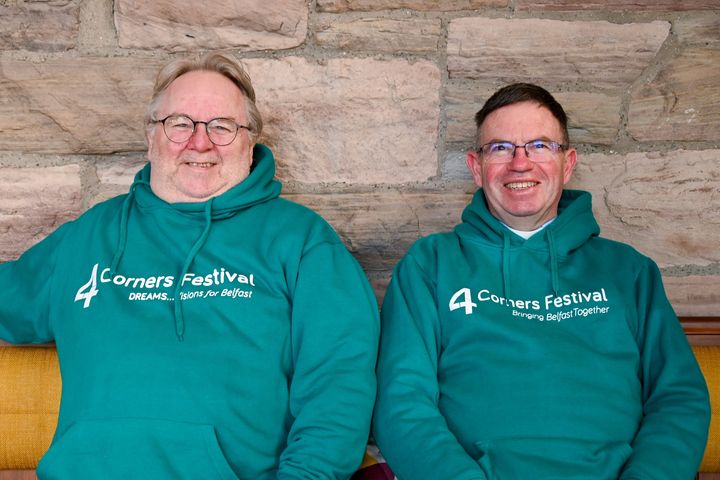
Younger and older Australians are disproportionately lonely and face increasingly poor health and higher mortality. or signup to continue reading Loneliness is of epidemic proportions with at least one in three Australians reporting the experience, a parliamentary inquiry heard on Friday. Ending Loneliness Together CEO Michelle Lim said those aged 18 to 24, the elderly and people in remote areas are disproportionately affected with the pressing public heath concern, spawning a host of health problems.
"Loneliness is bad for health and wellbeing, but when we actually have those persistent states, or more chronic states, that's where we actually exacerbate our incidence of high mortality and increase our risk to developing future health problems," she told a panel of researchers, mental health experts and policy advocates. Australia lags a host other countries who had integrated loneliness prevention into public policy and health measures, the University of Sydney professor said. Health and community services nationwide need to better understand, assess and respond to people at risk of loneliness, she added.
"I'm a registered clinical psychologist and we do not have specific training - even within our mental health sector - about what loneliness is," she told the inquiry into the prevalence, causes and impacts of loneliness in NSW. Ms Lim recommended evidence-based training programs for frontline practitioners to identify loneliness as well as guiding and promoting social connection. Current interventions are led by poorly resourced community organisations which lack the support to scale up, she added.
"So our efforts are really very limited and very siloed." Australia's peak psychologist body said the issue had been exacerbated over the last decade. "Various stresses, including the impacts of urban sprawl, lack of access to social infrastructure, the COVID-19 pandemic and now the cost of living crisis have exacerbated these challenges," Australian Association of Psychologists director Carly Dober said.
In young people, loneliness was manifesting as increasingly low self-esteem, suicidal ideation and poor educational outcomes. In the elderly, it was leading to cognitive decline and a higher risk of dementia. Ms Dober suggested increasing the Medicare rate to $150 per session for all psychologists to improve access to essential psychological care, as well as targeted funding for services in regional areas and greater support for communities experiencing heightened social isolation.
GPs could also serve on the front line connecting at-risk individuals to community services through 'social prescribing' avenues adopted by other parts of the world including the UK. "It's about connecting the community," the policy co-ordinator said. "So if somebody comes into a GP's surgery, and is obviously lonely, obviously disconnected from society, and needs that help with reconnection, it's about putting them in connection with the most obvious network.
" Council on the Ageing NSW has also called for targeted intervention to curb the "deeply concerning" trend. Research released by the organisation found six-in-10 older people say they're experiencing loneliness, with many feeling undervalued by society and struggling to reconnect. Four-in-10 lonely older adults engaged in social activities once a month or less frequently, while one-in-10 of that cohort left their homes once a month or less.
Minority groups such as people living with disability, the LGBTQI community and carers had even higher rates of loneliness. The council's chief executive Gohar Yazdabadi said the findings presented a "devastating picture". "Loneliness has profound impacts on the lives of older adults," she said.
"It prevents one in four adults from completing everyday tasks such as shopping and cooking, and one in five from seeking medical care. "The feelings of being undervalued and without a support network are a terrible reflection of ageism and the way we value older people in our society, the impacts of which are keenly felt." Lifeline 13 11 14 beyondblue 1300 22 4636 DAILY Today's top stories curated by our news team.
WEEKDAYS Grab a quick bite of today's latest news from around the region and the nation. WEEKLY The latest news, results & expert analysis. WEEKDAYS Catch up on the news of the day and unwind with great reading for your evening.
WEEKLY Get the editor's insights: what's happening & why it matters. WEEKLY Love footy? We've got all the action covered. WEEKLY Every Saturday and Tuesday, explore destinations deals, tips & travel writing to transport you around the globe.
WEEKLY Going out or staying in? Find out what's on. WEEKDAYS Sharp. Close to the ground.
Digging deep. Your weekday morning newsletter on national affairs, politics and more. TWICE WEEKLY Your essential national news digest: all the big issues on Wednesday and great reading every Saturday.
WEEKLY Get news, reviews and expert insights every Thursday from CarExpert, ACM's exclusive motoring partner. TWICE WEEKLY Get real, Australia! Let the ACM network's editors and journalists bring you news and views from all over. AS IT HAPPENS Be the first to know when news breaks.
DAILY Your digital replica of Today's Paper. Ready to read from 5am! DAILY Test your skills with interactive crosswords, sudoku & trivia. Fresh daily! Advertisement Advertisement.














